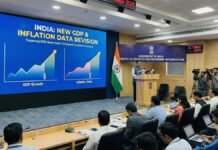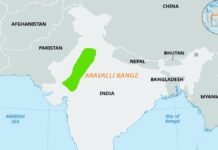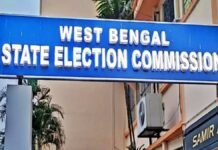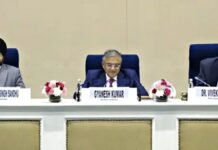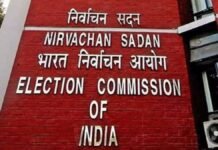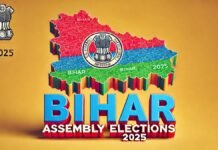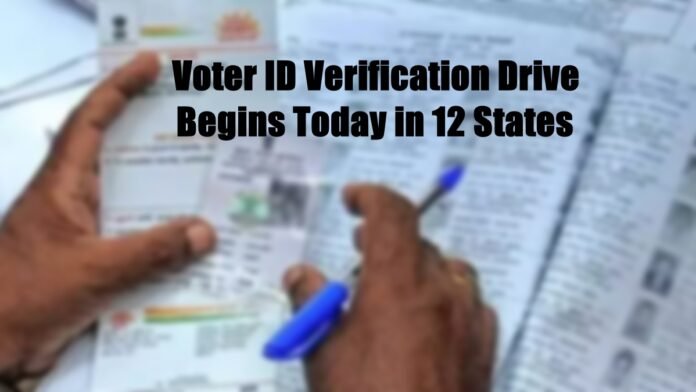
Key Points:
- Special Intensive Revision (SIR 2.0) begins today in 12 states including West Bengal, UP, and Rajasthan
- Booth Level Officers will visit homes three times between November 4 and December 4
- 13 documents mandatory for verification; Aadhaar card alone insufficient
- Draft voter list on December 9, final list by February 7, 2026
- First nationwide SIR exercise in over two decades since 2002-04
- Election Commission team to inspect Bengal districts from November 5-8
New Delhi: The Election Commission of India has initiated a comprehensive voter verification exercise across 12 states and union territories, marking the first such intensive revision in over twenty years. The Special Intensive Revision (SIR 2.0) process aims to clean up electoral rolls by removing ineligible names while ensuring no legitimate voter is excluded.
Massive Scale of Verification Exercise
The verification drive covers 51 crore voters across Andaman and Nicobar Islands, Lakshadweep, Chhattisgarh, Goa, Gujarat, Kerala, Madhya Pradesh, Puducherry, Rajasthan, Uttar Pradesh, Tamil Nadu, and West Bengal. This extensive exercise comes as four of these states Tamil Nadu, Puducherry, Kerala, and West Bengal, prepare for assembly elections in 2026.
Three-Phase Door-to-Door Process
Starting today, Booth Level Officers (BLOs) will begin distributing enumeration forms directly to voters at their residences. Each BLO has been instructed to visit every household under their jurisdiction three times to ensure complete coverage. The collection of completed forms will conclude on December 4, 2025, giving voters one month to submit their documentation.
The Election Commission will publish a draft voter list on December 9, 2025, allowing citizens to verify their inclusion and raise objections if necessary. After addressing grievances and completing verification, the final electoral roll will be released on February 7, 2026.
Stricter Documentation Requirements
A significant change in SIR 2.0 is the documentation requirement. Unlike the recent Bihar verification process, an Aadhaar card alone is no longer sufficient for voter ID verification. The Commission has mandated that voters present any one of thirteen approved documents to establish their eligibility and citizenship status.
The accepted documents include birth certificates, Class 10 or higher examination certificates, passports, government-issued land and property documents, caste certificates, domicile certificates, government employment identity cards or pension payment orders, family register copies, specific Aadhaar-related documentation as per Commission guidelines, National Register of Citizens (NRC) entries, identity cards issued before July 1, 1987, and land or house allotment certificates from government authorities.
Targeting Illegal Immigrants
Beyond updating electoral rolls, the SIR process has a crucial security objective: identifying and removing names of illegal foreign immigrants from voter lists. The Commission will verify voters’ place of birth as part of this exercise, implementing a systematic check that was last conducted during the 2002-04 SIR initiative.
This focus on citizenship verification has particular significance in border states where demographic changes and immigration concerns have been political issues. The multiple-visit system and stringent documentation requirements are designed to prevent fraudulent entries while protecting genuine voters’ rights.
High-Level Monitoring in Bengal
Recognizing the political sensitivity and upcoming elections, the Election Commission is deploying senior officials to monitor the process closely. A two-member team led by Principal Secretary S.B. Joshi and Deputy Secretary Abhinav Agarwal will visit West Bengal from November 5-8, 2025.
The team will inspect operations in three northern Bengal districts, Cooch Behar, Alipurduar, and Jalpaiguri areas that have witnessed immigration-related controversies. They will evaluate the performance of BLOs and Returning Officers, ensuring the verification process adheres to Commission guidelines and maintains political neutrality.
The inspection will also assess logistical preparedness, training effectiveness, and public response to the exercise. Given that West Bengal faces assembly elections next year, the Commission’s hands-on approach demonstrates its commitment to conducting fair polls based on accurate voter lists.
Timeline and Next Steps
With the process beginning today, voters in the 12 states and union territories should expect BLO visits over the next month. Citizens are advised to keep their documents ready and cooperate with officials during verification. Those who miss the BLO visits can also submit forms at designated centers or online through the Election Commission’s voter services portal.
The success of SIR 2.0 will be measured by its ability to create clean, accurate electoral rolls while minimizing the exclusion of legitimate voters, a balance that remains challenging in a country with India’s demographic scale and diversity.




